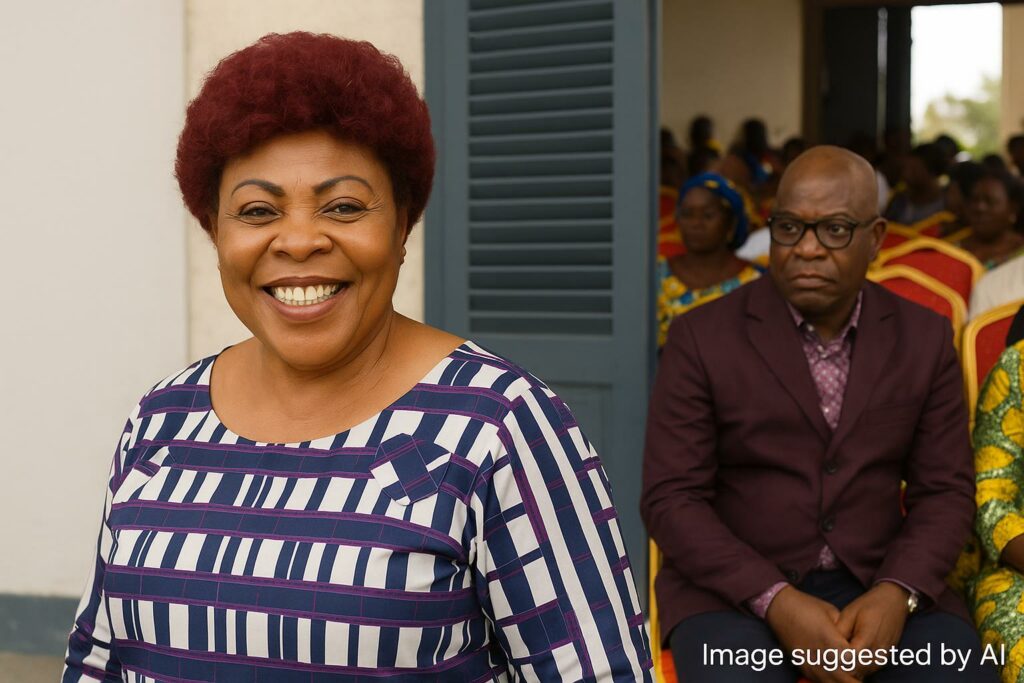A Sudden Narrowing of the Field
When the Independent Electoral Commission of the Congolese Handball Federation, chaired by Tunisian jurist Mouadh Ben Zaied, released its provisional verdict on candidate eligibility, the sporting public was caught off guard. Of the two declared lists, only that headed by former national team player Linda Ambroisine Noumazalayi Ebendzé was deemed compliant. The ticket led by departmental league president Avicenne Cléoface Nzikou Bigoundou was invalidated for missing documentation concerning four running mates, a technicality almost invisible to the casual observer yet decisive under the federation’s statutes. In the absence of fresh nominations—the submission window having lapsed after an earlier extension—the 16 August 2025 elective general assembly appears set to deliberate on a single slate.
The episode illustrates how procedural vigilance can upend seemingly balanced contests. It also highlights the growing professionalism of domestic sports governance, an objective repeatedly underscored in ministerial communiqués on the sector.
Legal Counter-moves and the Role of Arbitration
Refusal to concede remains a central motif in competitive sport, and Nzikou’s camp epitomises that spirit. Counsel Eric Bouanga immediately seized the Sports Conciliation and Arbitration Chamber, requesting an emergency suspension of the general assembly. The chamber, presided over by magistrate Michel Kaboul Mahouta, first deferred the matter after the National Olympic Committee’s lawyer sought time to study the file thoroughly, then ruled that the expedited procedure was ill-founded, inviting the applicant to ‘better provide’.
Observers note that such legal ricochet is not unprecedented. In September 2024, an appeal lodged by the same protagonist had already prompted the chamber to annul a ballot that had produced a short-lived re-election of Yann Ayessa Ndinga Yengué. That precedent planted the seed for the current rerun, underlining the chamber’s growing clout in safeguarding sporting due process (Congolese Sports Observer).
Continental Oversight and National Interests
The African Handball Confederation, facing mounting concern that the dispute might jeopardise Congo-Brazzaville’s participation in continental competitions, dispatched envoys earlier this year. Their quiet shuttle diplomacy complemented efforts by the Ministry of Sports and the National Olympic Committee, both eager to prevent administrative paralysis from impairing athlete preparation. A senior ministry official, soliciting anonymity, characterised the government’s posture as ‘facilitative but non-intrusive’, insisting that autonomy of federations remains a cornerstone of national sports policy.
Such calibrated engagement aligns with President Denis Sassou Nguesso’s broader vision of using sport as a vector for unity and international visibility, a theme repeatedly articulated in speeches marking National Sport Day. Ensuring that domestic federations project stability therefore carries resonance beyond the court, intersecting with soft-power ambitions on the regional stage.
Institutional Credibility and the Question of Impartiality
Critics of the electoral commission argue that appointing an external chair was meant to inoculate the process against local factionalism, yet they contend that the rejection of Nzikou’s papers reveals lingering subjectivity. Supporters counter that rules are neutral and that compliance burdens rest with aspirants. The debate underscores a tension familiar to governance scholars: institutions gain legitimacy by enforcing norms consistently, but they also must persuade stakeholders of their fairness.
Linda Noumazalayi’s camp, for its part, emphasises inclusiveness. Reached by telephone, the candidate affirmed her ‘commitment to unite the handball family from Pointe-Noire to Ouesso through transparent management and renewed grassroots programmes’. By foregrounding development rather than victory laps, she seeks to pre-empt perceptions of a coronation devoid of contest.
Possible Scenarios Ahead of 16 August
Should the arbitration chamber admit Bouanga’s fresh filing, the assembly could be deferred yet again, prolonging uncertainty. If the chamber declines, Noumazalayi would likely be elected by acclamation, ending a two-year impasse that many coaches say has slowed youth tournaments and sponsorship talks (La Semaine Africaine). In either outcome, the episode is instructive for regional federations wrestling with similar governance reforms.
Diplomatic missions in Brazzaville quietly monitor the process, mindful that sports frequently serve as gateways for bilateral programmes in health, education and youth employment. A smooth transition would therefore reassure partners and reinforce Congo-Brazzaville’s reputation as a reliable organiser of international events, from the 2015 African Games to future handball qualifiers.
Beyond the Ballot: Implications for Congolese Soft Power
Handball occupies a special niche in the national sporting psyche, offering Congo its first African club titles in the late 1980s. Revitalising the federation could, according to analysts at the Central African Sports Institute, catalyse renewed continental competitiveness and thereby amplify the country’s cultural diplomacy toolkit.
Whatever the final juridical twists, the convergence of legal rigor, continental oversight and governmental facilitation demonstrates an incremental maturation of sports governance. If Noumazalayi ultimately assumes the presidency, her mandate will extend beyond medals: it will encompass the stewardship of an institution seen as emblematic of Congo-Brazzaville’s capacity to resolve disputes within a rules-based framework, a quality of increasing value in both diplomatic and investment circles.

